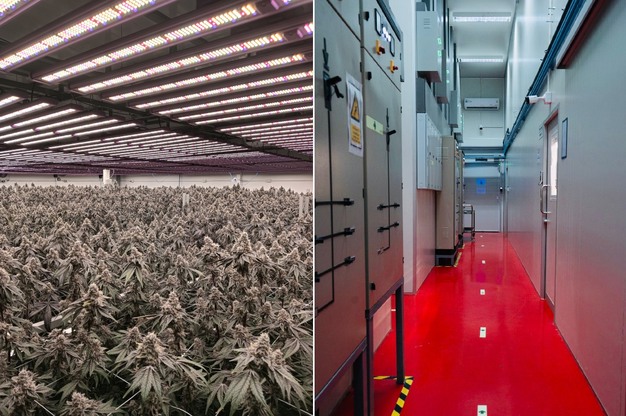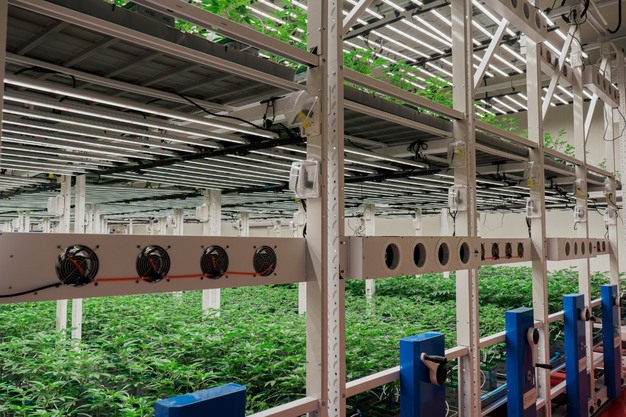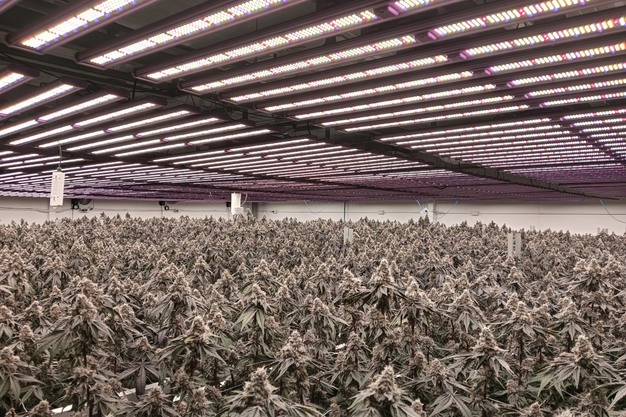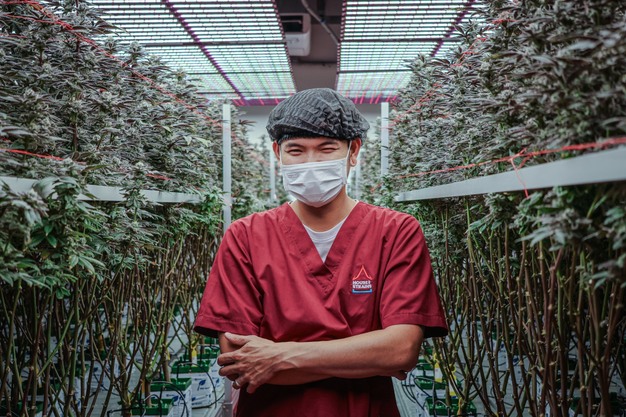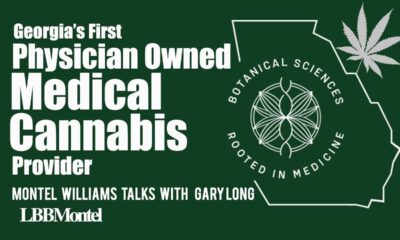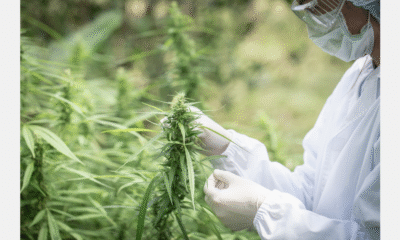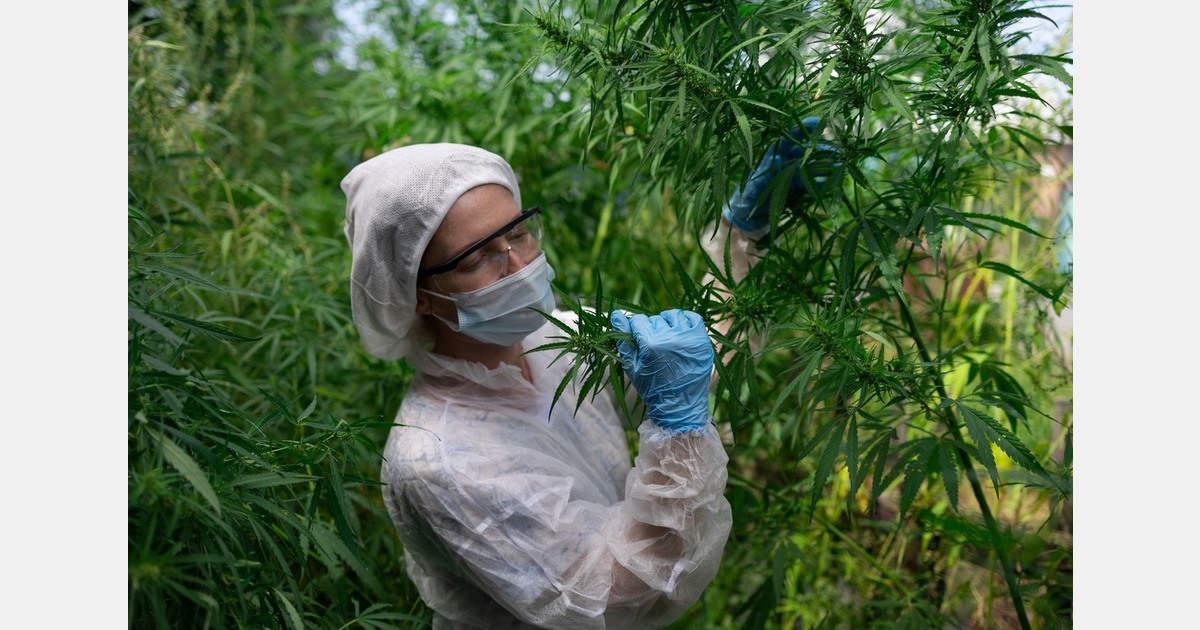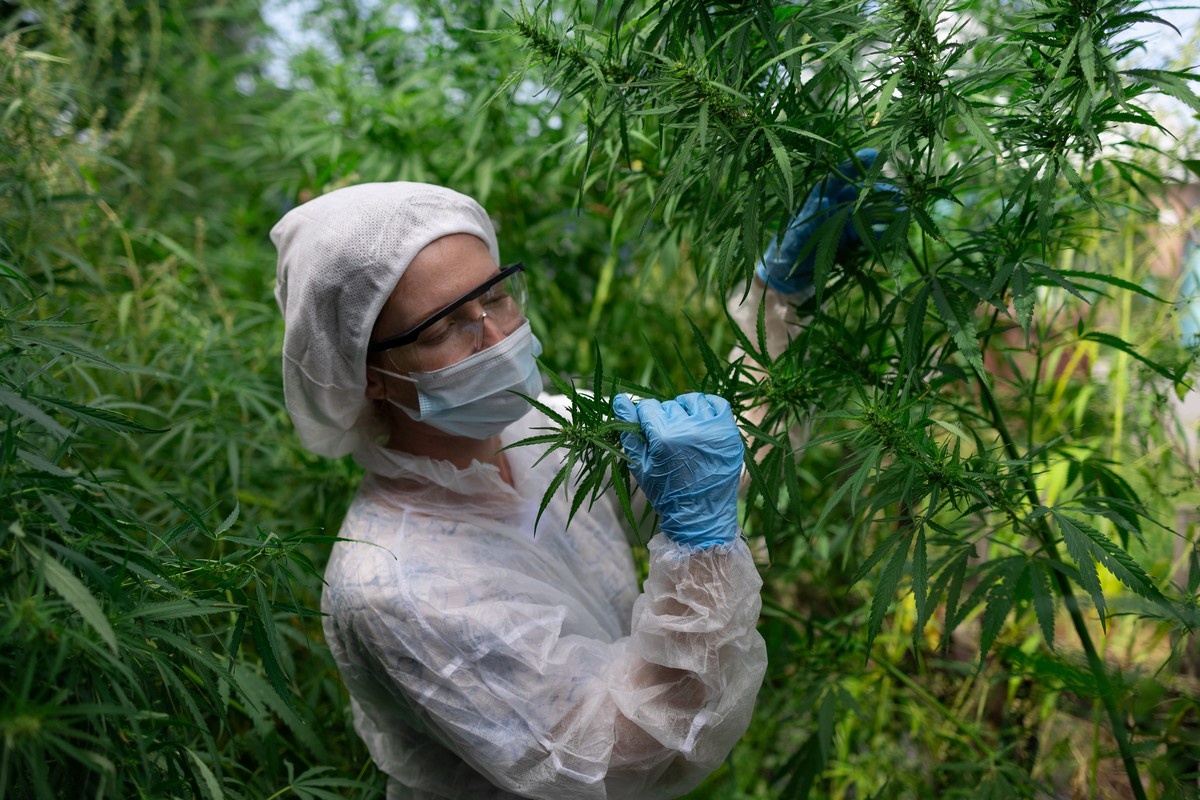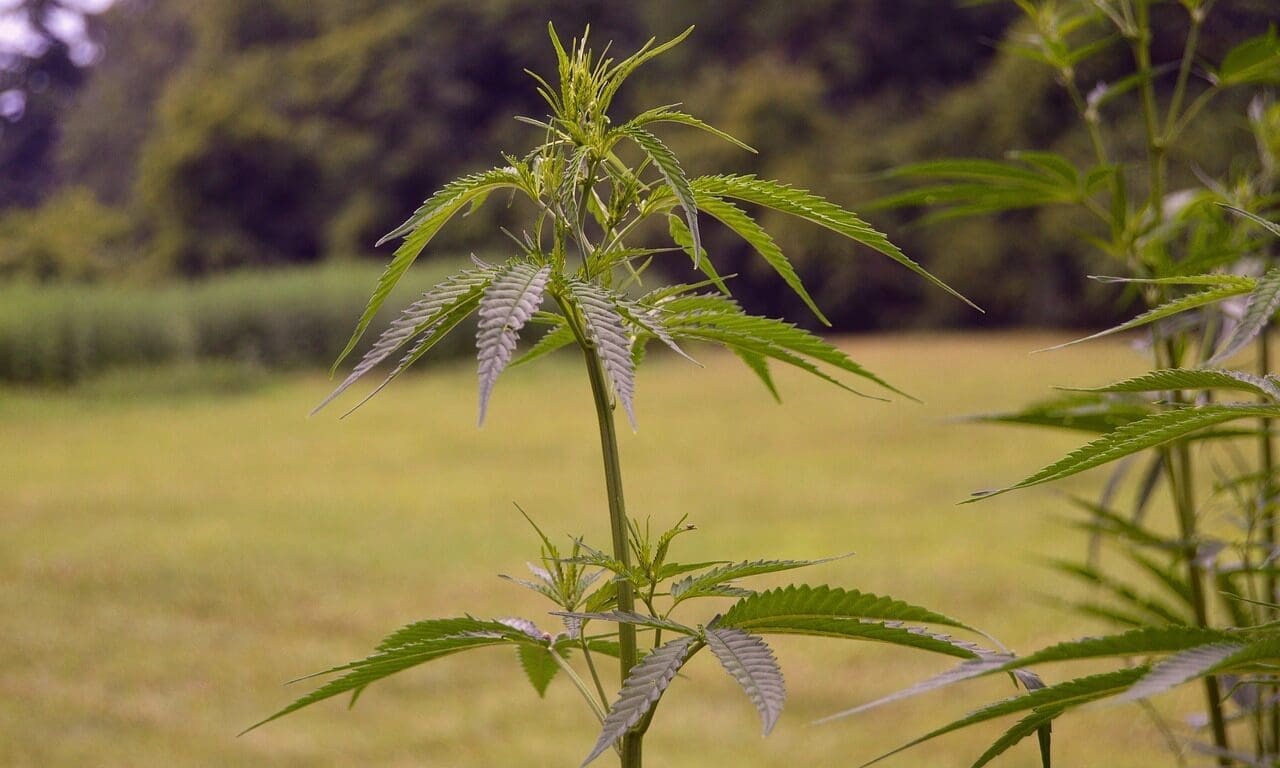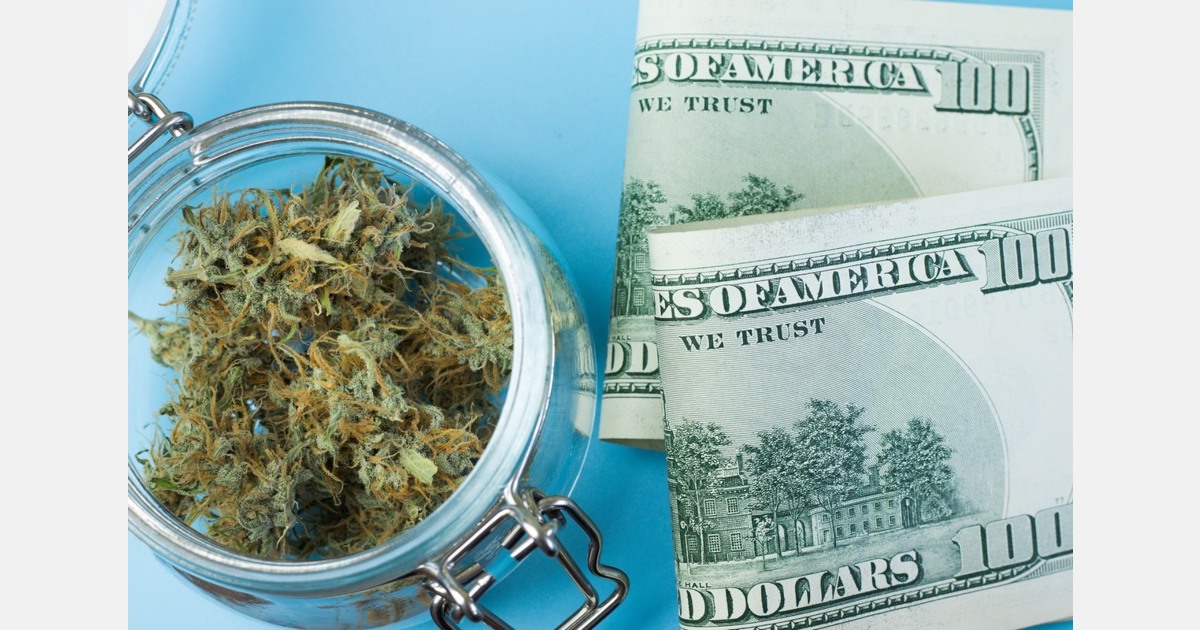“We have a year to figure it out or we have a year to like it, crush it and fight for the plant and we hope to change that with the legislation.”
By Brandon Kingdollar, NC Newsline
For Hannah DeLange, the most rewarding aspect of running Redhead Hemp’s Durham location has been “creating a space where people feel comfortable and safe,” creating an inviting social atmosphere much like a coffee shop or bar.
Shelves are stocked with CBD gummies, Delta-9 sangrias and THC caramels, among other drinks and treats with promises like “sleep with benefits” and “lower calories, bigger vibes.”
The interior of the store looks cozy, with plants covering the brick walls with brightly colored artwork and plush sofas and chairs for relaxing. At the store’s “Canna Cafe,” customers can sit down with hemp-infused tea and coffee.
“It’s kind of a space for everybody,” DeLang said. “It has to be a plant for all people, and it has to be accessible, and to create a space that can really personify that.”
Now, the future of that space and many others like it are in jeopardy, with the majority of hemp-based cannabinoid products set to become illegal in November 2026.
Hemp business owners in North Carolina and their counterparts across the US are grappling with the impact of the ban, with some mounting advocacy efforts to reverse the ban and others working to narrow the range of CBD products that will remain legal.
“I think there is a lot of fear”
“We found out the morning of the Senate vote that this was happening,” said Emma MacAdam, owner of Redhead Hemp. “It was pretty clear when they put it in the bill that that bill was going to pass, so it just seemed like a vicious way for them to push their agenda into a bill that was so necessary and important to so many people.”
Hemp and marijuana are varieties of the cannabis plant, which differ mainly in levels of the psychoactive compound THC, with hemp containing much less. CBD, another chemical produced by the cannabis plant, does not have an intoxicating effect by itself, but it does produce a calming effect and has been shown to help treat pain and anxiety.
The ban, which significantly lowers the acceptable level of THC in hemp products, was passed earlier this week as part of a farm credit bill along with a stopgap funding deal to end the federal government shutdown.
It bans the sale of hemp products, including CBD products, that contain more than 0.4 milligrams of THC per container, DeLange and MacAdam said, about 99.5 percent of their stock. That would eliminate “full-spectrum” hemp products, which they said make up the most typical CBD products.
“They’re basically saying we can only use the non-intoxicating parts of the plant,” DeLange said. “For a lot of people, the compound THC, even that small amount that you see across the spectrum, that’s really important for pain relief, anxiety, sleep and things like that.”
DeLange said using CBD products has also helped some clients stop using opioids or stop drinking heavily. “Beverages have been a great resource for a lot of people who want a healthier alternative to that.”
The ban comes after lobbying by the marijuana industry and state law enforcement that the hemp industry exploited a loophole to sell products with many of marijuana’s effects but without regulatory oversight. The senators say they never intended to open up a recreational hemp market and only wanted to allow the cultivation of industrial hemp.
The reason, according to Sen. Mitch McConnell (R-Ky.) and other co-sponsors of the Farm Bill, is to “keep these dangerous products out of the hands of children, keeping the hemp industry to farmers,” and to do so, it closes a loophole that allows CBD products to be sold with less than 0.3 percent THC, a threshold that the Farm Bill originally helped overcome.
“Unfortunately, companies have exploited a loophole in the 2018 law by taking legal amounts of THC from hemp and turning it into an intoxicating substance, then marketing it to children in candy-like containers and selling it in easily accessible places like gas stations and convenience stores across our country,” McConnell said.
MacAdam and DeLange pushed back that the products are aimed at younger customers. They said their store has a strict 21+ policy.
“It’s very easy to use the iconic ‘save the children’ flag for a lot of things, I think there’s a lot of fear around cannabis – that’s the history of cannabis, period,” DeLange said.
“And there’s no talk of parental responsibility in that matter, or the fact that liquor isn’t safe for kids, and a lot of the new liquor companies are pretty and colorful,” MacAdam added. “I think it’s a complete escape.”
‘Wild West’
The rapid change to the ban represents a significant change for an industry that has seen little regulation in many states, including North Carolina, for the past seven years.
North Carolina has not enacted regulations on intoxicating hemp products, even with basic age restrictions, despite the support of the state Senate, Gov. Josh Stein (D) and Attorney General Jeff Jackson (D).
In February, the state’s child welfare task force reported a 600 percent increase in emergency room visits for minors related to cannabis use since 2019. Stein launched the Cannabis Products Advisory Council in June, saying “our state’s unregulated cannabis market is a wild west and is crying out for order.”
Last month, Jackson joined attorneys general in 38 states to ask Congress to regulate the sale of CBD products, asking lawmakers to “clarify the federal definition of hemp” during the appropriations process.
“Efforts by states to outlaw hemp-derived psychoactive products to protect their citizens cannot solve this problem,” the attorney general’s letter says. “Such efforts can only lead to unique and ineffective prohibitions and regulations that differ from state to state and will not stop the flood of THC mail order products from being transmitted through interstate commerce.”
Bills proposed in North Carolina that have not advanced this year include bans on sales to minors and sales permit requirements and child-friendly packaging and printed warnings. A bill passed by the Senate in June, which Jackson spoke for, would ban the sale of hemp-derived drinks, gummies and other products to anyone under 21 and prohibit their use on school grounds, among other rules, like a licensing process.
That bill and many others died in the powerful House Rules Committee, now chaired by Rep. John Bell (R-Wayne), who in 2024 became chairman of the hemp company Asterra Labs. Bell did not respond to multiple requests for comment for this story.
MacAdam said the lack of regulation has been a boon in some ways, such as making the industry more accessible to those with relatively few resources, creating greater opportunities for traditional business owners.
“It’s really nice when there’s no barrier to seeing what an industry can do. There’s no license that you have to pay $100,000 for. I started this business with a little money and a big goal, and I’m so grateful for all the people we’ve met along the way,” he said.
“It’s part of our way of life”
Also stopping are farm owners of flowering or smokeable hemp, a crop grown to make CBD products. Dana Rider, co-owner of Otherside Farm in rural Buncombe County, said the industry has been “disgusted” since hemp products were legalized in 2018 thanks to potential bans.
“We’d freak out and then everything would be fine, or they’d put it off for another year,” Rider said. “Obviously, (the ban) is going to strike a chord somewhere because, you know, it’s part of our livelihood.”
He said his family started growing hemp a year after starting their farm. Other farmers he knows have switched to hemp to revive their run-down tobacco farms and dairies. They now operate an online store, Otherside Hemp, and also sell their products in stores across the state. “It’s part of our income and helps keep the farm going,” he said.
He said that for many clients, the goal is not to undergo a chemical, but to manage pain and other conditions such as insomnia and anxiety.
“Your grandmother and your aunt and your parents don’t want to feel different, they don’t want to have that altered consciousness,” Rider said. “They just want to feel better.”
MacAdam and Rider both say they have been in conversation with other business owners who are working to push back against the ban before it goes into effect.
“We carry a lot of small businesses, a lot of family-run businesses, so we’re very concerned about our friends,” MacAdam said.
Otherside Farm plans to ask its supporters to contact state and local representatives about the ban, Rider said. “We have a year to figure it out or we have a year to like it, crush it and fight for the plant and we hope to change that with the legislation.”
“We will wait,” he added. “Until they tell us we can’t sell our stuff anymore, we’re going to keep selling our stuff and growing and producing our products.”
While some farms and shops will be able to continue to legally sell products processed to remove THC, also known as “CBD isolates,” Rider said his farm does not have the equipment to produce them. Since they only sell full-spectrum products, their entire product range would be wiped out by the ban.
“For us, we can’t really pivot, can we?” said Rider. “We wouldn’t be around anymore, basically, and that’s sad to think about.”
This story was first published by NC Newsline.


 Cannabis News3 months ago
Cannabis News3 months ago
 Florida3 months ago
Florida3 months ago
 Canadian Cannabis News3 months ago
Canadian Cannabis News3 months ago
 Video3 months ago
Video3 months ago
 Best Practices3 months ago
Best Practices3 months ago
 Video3 months ago
Video3 months ago
 Cannabis Products & Services News3 months ago
Cannabis Products & Services News3 months ago
 aawh3 months ago
aawh3 months ago
